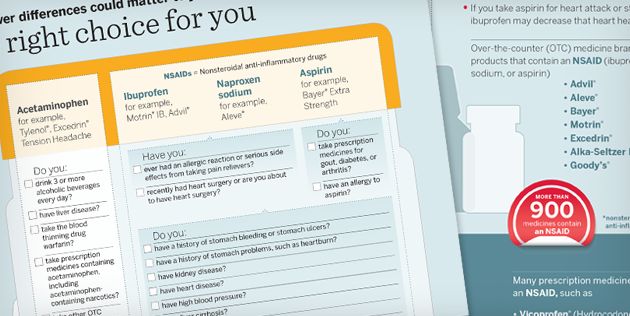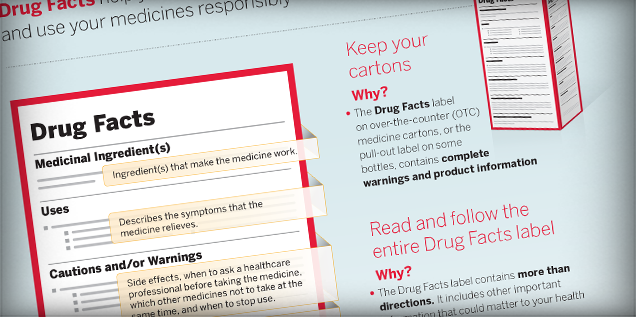When you have back pain, even simple tasks can become difficult. An over-the-counter (OTC) pain reliever may help if you choose one that’s appropriate for you based on your health conditions, age, and other medicines. Once you decide on a pain reliever, never take more than directed or for longer than directed. There are also things you can do instead of or in addition to medicine that may help ease your back pain.
Pain management tips for aching backs
Here are tips that may help you feel better if you have back pain:

Try to stay active
Simple, non-strenuous movement like walking can help your back feel better.

Use ice and heat
Many experts suggest using ice packs for the first 48 hours after pain starts and then switching to heating pads. Apply ice or heat for 15 to 20 minutes several times a day.

Pay attention to posture
Poor posture while standing or sitting can lead to back pain or make it worse.

Strengthen your core muscles
Weak abdominal muscles can put added strain on the lower back; strengthening them with exercises may help reduce pain.

Stretch to become more flexible
Tight or tense muscles can cause back pain or make it worse. Stretching exercises may help. Ask your healthcare professional which stretches may be best for you.

Try relaxation techniques
Activities like yoga, meditation, tai chi, and deep breathing can change the way your mind senses pain.
Get your pain reliever dose right. Why?
If you take more medicine than the label says, you may increase your chance of serious side effects. To use OTC pain relievers responsibly:
Take the dose directed on the label
Wait the right amount of time between doses
NEVER take more than the daily limit
If your pain lasts for more than 5 days, stop taking the medicine and see a healthcare professional. It’s possible that the problem may need more attention or a different treatment approach may be needed.



